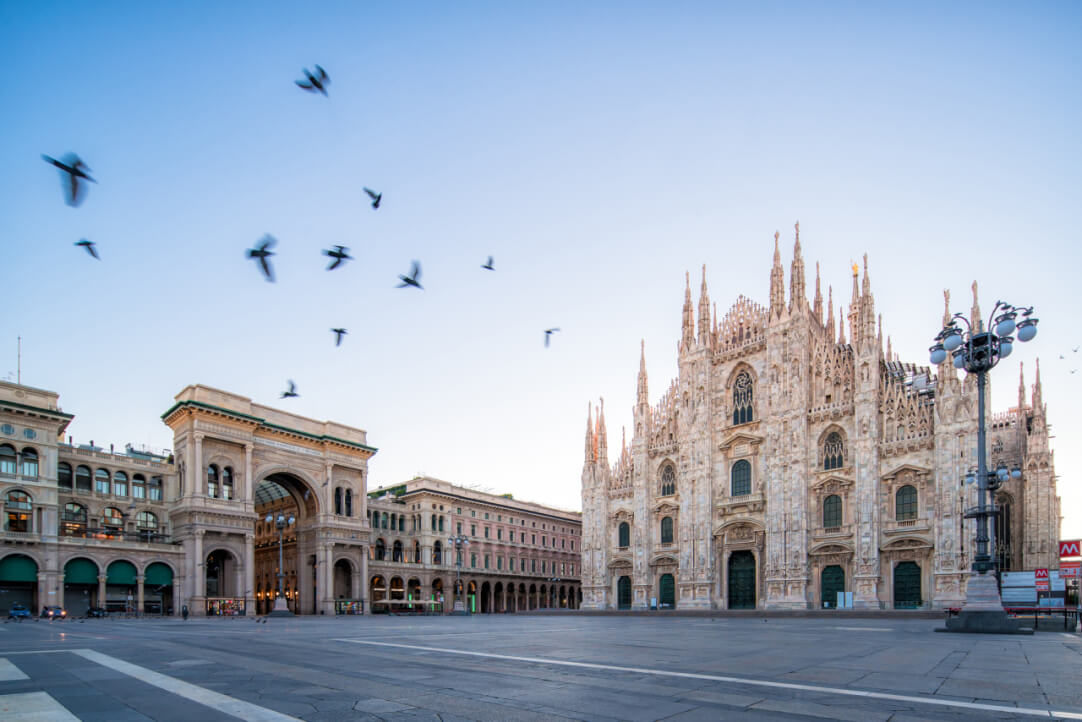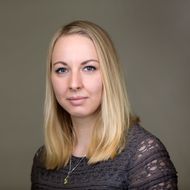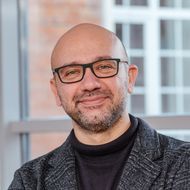Master's Programme 'Data Analytics for Politics and Society' Launches Double Degree Track
In the previous interview with the programme's Academic Supervisor we mentioned a promising academic collaboration between HSE University – Saint Petersburg and the University of Milan. More about how the signed agreement on the double degree track will allow the programme's best students to study in Italy for at least a semester and obtain two diplomas issued by both universities tell Ksenia Tenisheva and Prof. Luigi Curini.

The recent good news for the programme is the settled agreement on the double degree track with the University of Milan. The programme 'Data Analytics for Politics, Society and Complex Organizations', shortly DAPS&CO, is the HSE’s partner in this track.
Ksenia Tenisheva, Academic Supervisor of the Programme 'Data Analytics for Politics and Society'

First of all, we expect that our students will get involved in the academic culture of one of the outstanding Italian universities. What is more, they will be taught by professors who are the leading professionals in data analytics and social sciences.
— What disciplines will our students study in the partner University? What experience should they gain during the double degree track?
— In general, they will take disciplines on big data analysis and also agent-based modelling, and there will be a couple of disciplines on social science. For example, our students will study Policy Design Analysis & Evaluation, Big Data Analytics, Data Access and Regulation.
The DAPS&CO is a very high-quality programme that teaches model thinking and data analytics skills. They have more experience in this field than we do. What is more, our students will be taught by professors who are the leading professionals in data analytics and social sciences. We expect them to develop very high-quality projects and we hope that this experience will help our students to continue their academic track or be successfully employed in the business sphere.
— Why did the programme's supervisors' choice fall on the University of Milan? What are the advantages of it compared to the other Universities which suggests programmes for prospective analysts?
— Firstly, this collaboration has grown from long-standing research cooperation between our programme’s Scientific Supervisor Prof. Daniil Alexandrov with Prof. Luigi Curini from the University of Milan. This was an opportunity to start the negotiations easily.
The DAPS&CO programme was an ideal choice for us because it is very close to our HSE Master’s programme. We share the general approach: teaching all the types of analytics dealing with all the types of data, starting with comparative studies and up to the research of social media and big data. We got inspired by this.
We also share one of the key courses for both programmes – it is called 'Social and Political Attitudes'. It was first introduced in Milan, and then we included this course in our programme as well, as we have a lot of professionals in the comparative studies of social and political attitudes and even an international laboratory (LCSR), which is dedicated specifically to this topic.
— How will studying in HSE and in Milan correlate?
— We share much in common and the core courses are more or less about the same, but also, of course, there are some peculiarities in each programme. I would say that here at HSE – Saint Petersburg we have more courses on methodology, political studies, and specific methods of data analysis like text mining. And the DAPS&CO programme in Milan provides more specialized courses on organizational studies, this is one of their specialities, which is not introduced here, and on the data access and regulation. So this would be the difference. But at the same time, the general approach is very similar.
— How will be the students’ selection held? How long will our students be able to stay in Italy? When can the students participate in the double degree track selection?
— The selection will be based firstly on the students’ applications. The process will start in February and will be closed at the end of March. We will take into account students’ motivation letters and CVs. The most important part will be their records, the GPA – the more successful students are, the more eligible they are to participate in the double degree track. The last formal rule – students have to have no less than 60 credits in their first year of studies here by the moment of application.
Our students will be able to spend in Italy at least half a year, but there will be an opportunity to stay for the entire year if they want to write their graduation paper in Milan. Anyway, exchange students from Milan and HSE will have to defend their final theses in a joint committee of both universities.
We plan that the next autumn, in September 2022, up to five of our students will join the educational process at the University of Milan.
Prof. Luigi Curini, Department of Social and Political Sciences of the University of Milan

I was especially impressed by a couple of people, who were outstanding and mature from the scientific point of view. And I’m looking forward to having these students in Milan next year.
— What are your hopes and expectations about the double degree track between HSE – Saint Petersburg and the University of Milan?
— I think this double degree track could be just the beginning of the 'big plan' that we have discussed with HSE Master’s programme’s supervisors - starting to build an international network of Master’s programmes around Europe including even some Asian countries in the future, like Japan, for example. The idea is to match programmes of social and political sciences with much stronger knowledge about new methods of dealing with big data as well with the logic of causality.
We need to think about this network not only with respect to students but also involving professors as well. There are in fact two types of patterns involved in building this network: on one side, we can have students that actually can travel around all the network (for now we just start between SPb and Milan, but if we increase the network, the students could also move to some other places); but this also can be applicable to the professors. We do believe that increasing the strength of the relationship between professors (and students) across different countries and universities can create a significant value. So we're excited to start from here, but that is just a first step in what we hope to be a much longer project and achievement.
— What makes you interested in teaching at HSE – Saint Petersburg?
— For both professional and personal reasons. I had a chance to meet Prof. Daniil Alexandrov two years ago during a conference in Milan. Back then we started to talk and we found out that we have a lot of common interests and a similar academic vision. I also learned that Daniil had the ambitions to build a new Master’s programme here at HSE - Saint Petersburg similar to what we already had in Milan. So that was my professional reason.
Then there is also a personal perspective which is very simple (smiles): my wife is Russian, although she has been living in Italy for 16 years, and my kids are half-Italian and half-Russian, so it’s a great opportunity for them to live in this beautiful city.
I’m interested in broadening my personal experience: being able to develop a linkage with such a prestigious university as HSE – Saint-Petersburg and to create a stronger connection between academic people at the University of Milan and scientists from here. It’s something that I feel I have to do. And that’s the idea.
— How do you like it here so far?
— I was really impressed by the quality of the HSE students. I had a chance to attend two different days of students’ research projects presentations, and the overall quality is pretty high. The faculty is pretty good as well: I had a chance to meet a couple of professors and had really good feedback, about which I’m very happy. Next month we are going to have a web seminar at which we will see how people will interact in it. And apart from that, Saint Petersburg is a beautiful city and we’re happy to be here.

